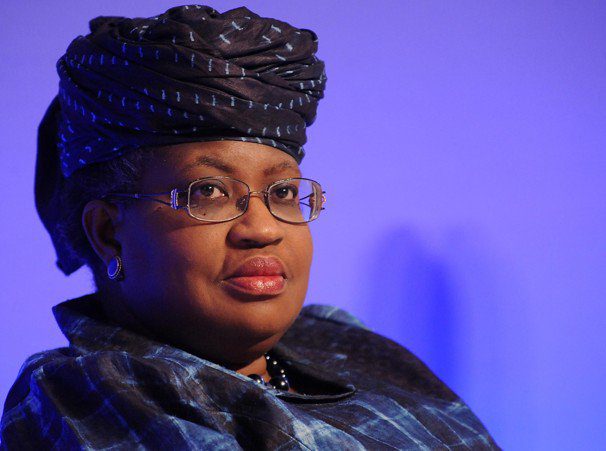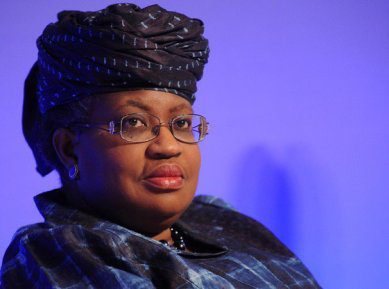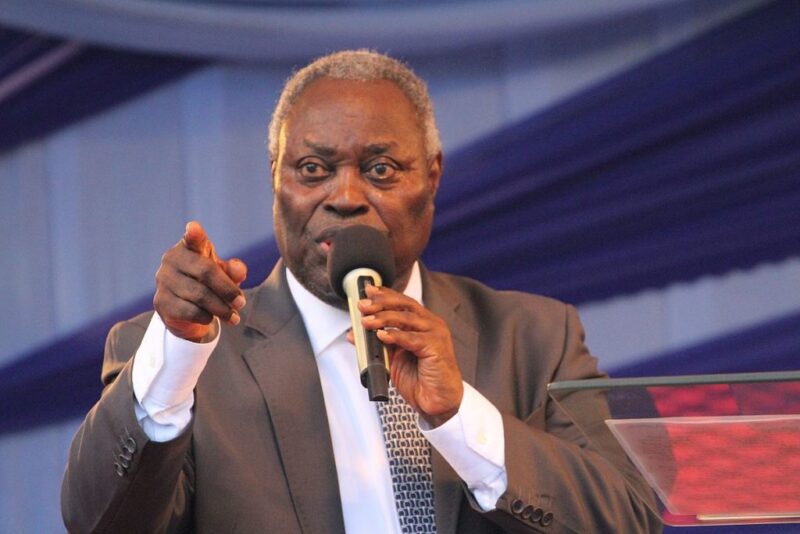Economic Issues
Now that Okonjo-Iwealanomics has failed -By Abraham Ogbodo

The domestic economy has run substantially on the theories and principles enunciated by Dr (Mrs) Ngozi Okonjo-Iweala since 2003. I am saying this so that we place culpability where it rightly belongs if the need arises to apportion blame. Everything is on Ngozi’s head. This is even more so in her reincarnation in the Jonathan administration as a super minister.Now, she is not only a finance minister, but also a coordinating minister of the economy; something very close to a prime minister.
This means she has been doing more than just being the national treasurer. She coordinates the physical and social infrastructures of the economy. In effect, she is the person to answer questions on agriculture, education, health, security, electricity, building of roads and bridges and so on. It is quite a basin full, but Madam has been doing well, proving at every point that her experience at the World Bank puts her in a fine stead to direct the affairs of the entire country on behalf of President Goodluck Jonathan and Nigerians.
Ngozi had come smoking, but as it can be seen, there is nothing hot inside her. Nigerians have waited in vain for 16 years for that watershed policy from the stable of Ngozi that will give a new direction in macroeconomic management in the country. Nothing has emerged. All that we hear is oil subsidy, oil subsidy and its complete abolition to pave the path to an economic Eldorado.
That has been the redemption song of all successive governments since oil became a major factor in the national economy. The subsidy removal theory does not require deep thinking. My economics teacher in the secondary (not Sixth Form), Mr Uyo, can do better if all that is needed to manage a developing economy is official alienation. Uyo had taught me the factors of production, and how the forces of supply and demand could interplay to create price and value.
So far, so good, Ngozi has taught me nothing. In my infantile imagination I had put Uyo into a knotty task. I asked why Nigeria would complain of being broke when there was a minting company to churn out as much money as the country needed. He explained that if that happened, there would be more problems as the naira would be worth less than tissue paper. This was in 1979 and I wouldn’t know who the finance minister was then.
But whoever that was in charge of the national treasury was a better manager of resources than Okonjo-Iweala. Between 2000 and 2011, the country earned some N50 trillion from oil proceeds as against N3 trillion it earned between 1979 and 1999. Yet with this small money, the steel complex and additional infrastructures in power generation and petroleum refining capacity were put on stream.
When nations are at crossroads, their best are usually thrown-up. In the decade of the 1930, countries that ran on market economies were in the doldrums. In the US especially, about 31 per cent of the national work force was out of job. This is described as the Great Depression in economic history and it was the time that one John Maynard Keynes was thrown up by capitalist economies of the West to chart a way forward.
A Briton, Keynes simply said state intervention was needed to strike a safe ground between boom and doom and that it was unwise for government to stand aloof and allow the market tospin out of control. To drive demand and ultimately production to regain lost jobs and wealth, Keynes had recommended big government. It was probably the point at which the economics of Adam Smith and Karl Max crossed part – mixed economy. In effect, the Keynesian theory holds that the ripple effect called multiplier in business jargon which will inflate a depressed economy back to life can only be induced by the spending power of government, which, in any case, is the only quarter with capacity to spend when the chips are down.
Today, Nigeria is at the crossroads and there is no Keynes or even Milton Friedman to show a clear direction. By the way, the latter is an American who came after Keynes to say almost the opposite — free market with minimal intervention — of what Keynes said. His prescription nevertheless served the purpose of the American society especially under the Roland Reagan years. Friedman said everything including military service, exchange rates, tax and healthcare should be floated for competition.
In all of this, what matters is the flexibility with which the swing from one extreme to the other is done or the prompt appreciation of the reality on ground. For instance, when the boom burst under George Bush Jnr and it had seemed America was going down the drain again as it was in the 1930s, Barack Obama returned to the Keynesian macroeconomics foundations when he entered in 2008. He injected close to a trillion dollars from the Federal Reserve into a purely capitalist economy to save General Motors and the insurance giant, AIG from going under.
Here in Nigeria, there is a sovereign trust kept aside for a so-called rainy day whereas it is already raining cat and dog. The point I am making here is that we do not have clear thinkers in Nigeria or if there are, they are not part of the human clique that determines how things are run. More or less, we are stranded in high places with pretenders, almost con men and women, who equate pedantry with deep knowledge. The other day, an Olusegun Aganga was talking big about causing about 20 auto assembly plants to open shop in Nigeria. How? When? Where are the enabling infrastructures and policy environment to sustain such large-scale offshore investment delivery? Just talking big to earn applause!
It is not good when public officers talk anyhow like tomato sellers. They are hired to think and talk clearly on points. With the tumbling oil prices, time has also come to hold this other guy called Dr Akinwunmi Adesina to account. He also has been talking anyhow about an agric transformation and large-scale production of local rice that is neither seen in Igbudu Market Warri nor Daleko Food Market in Lagos. Such is the colour of political leadership in Nigeria; an annoying blend of mediocrity and buffoonery.
Since agric is now at its best in Nigeria, I had expected Minister Okonjo-Iweala to switch from oil to agriculture mode as soon as the petrol dollars started diminishing. Instead, after an initial gra gra talk that led nowhere, she came to terms with the reality and started talking sensibly, saying austerity measures and devaluation of the naira are the two sure ways out of the meltdown.
If the opportunity is offered for Madam Minister to count her blessings, she will surely mention the wholesale paying off of Nigeria’s debt and a SURE-P programme that is allegedly using monies saved from petroleum subsidy removal to create employment among youths. Taxes have also increased to give government more money. She may also add that government is spending big in accordance with the Keynesian prescription to increase demand and drive production to create job opportunities.
But she will not say that government is spending big in areas that do not induce a multiplier. Fat salaries and emoluments for civil and public servants in a developing economy that is also experiencing a down turn can only drive ostentation and not production. The expenditure sides of the national budgets have consistently run on 80 per cent recurrent and 20 per cent capital votes. What level of economic expansion is achievable under this kind of arrangement?
And instead of injecting funds to bail out ailing public enterprises, government has found the Friedman approach more convenient even without the fundamentals in place.
Today, we are selling national heritages at give away prices to dubious investors to further contract the economy and increase unemployment. Ngozi should note that the SURE-P handouts to restive youths across the country do not translate to gainful employment because they are not backed by production. They are at best palliatives and at worst free money that can only breed indolence among the working population.
Currently, unemployment rate hovers around 30 per cent and the external debt burden, which Ngozi had lifted in her first outing under Obasanjo has resettled and weighs about $10 billion by one estimate. The naira is almost at an all time low. Cost of funds is prohibitive, causing the real sector to starve to coma. Business in Nigeria is now all about buying and selling imported stuff or creating domestic markets for factories in Southeast Asia. Non-oil Exports is fast becoming a vanishing concept in Nigeria’s macroeconomics.
This is precisely where we are with Okonjo-Iwealanomics even as we hope for a better tomorrow, unfortunately, with the same set of variables.




















